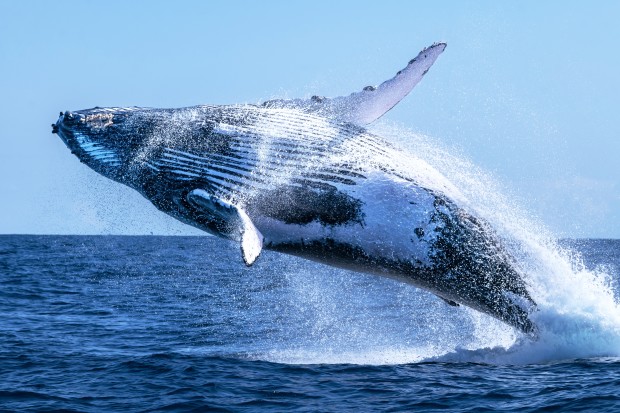No products in the cart.
Fitness Tips
Cruise Line Apologizes After Passengers Watch 70 Whales Killed

Whaling has been a time-honored tradition in the Faroe Islands for centuries, although not one that has come without controversy. When a British cruise liner pulled into port in the capital city of Tórshavn on July 9, the passengers got to experience a part of the local culture firsthand as more than 70 pilot whales were slaughtered nearby, leaving the port waters blood red.
Ambassador, the company that runs the ship, issued an apology after their customers got a front-row seat to the gruesome acts. It also condemned the whalers‘ actions and called for an end to the custom.
“We were incredibly disappointed that this hunt occurred at the time that our ship was in port,” the statement posted on Twitter read. “We strongly object to this outdated practice, and have been working with our partner, ORCA—a charity dedicated to studying and protecting whales, dolphins, and porpoises in U.K. and European waters—to encourage change since 2021.”
1. Ambassador can confirm that the arrival of Ambition in Torshavn in the Faroe Islands today coincided with the culmination of a hunt of 40+pilot whales in the port area. We were incredibly disappointed that this hunt occurred at the time that our ship was in port.
— ambassadorcruiseline (@ambassadorcruis) July 10, 2023
The Faroese government responded to the cruise line’s call for justice by pointing out that whaling has been a sustainable practice in the islands for hundreds of years.
“As has been the case for centuries, whaling still occurs in the Faroe Islands today,” a statement read, per ABC News. “The Faroese have eaten pilot whale meat and blubber since they first settled the islands over a millennium ago. Today, as in times past, the whale drive is a community activity open to all, while also well-organized on a community level and regulated by national laws.”
Indigenous peoples have sustainably hunted blubber-bearing animals like whales and seals for thousands of years. The Faroese tradition of “grindadráp” (pilot whale killing), like these Indigenous practices, have come under increased scrutiny from animal rights groups in recent decades.
Faroese authorities have overseen the grindadráp since 1948 and enforce the many rules that whalers need to follow. This includes all fishermen being required to undergo special training, learn how to use modern boats and communications, and be supervised by police the whole time. In 2023 alone, the Faroe Islands have registered 646 whale killings so far, including the 78 from the most recent slaughter. The islands also faced controversy in 2021 after a massive dolphin hunt, and adopted more stringent regulations governing the practice.
Related: A Beached Whale in Spain Had a Pricey Treasure In Its Guts
If you’re planning to visit the Faroe Islands, just be prepared to see whaling firsthand and explain it to your kids.

